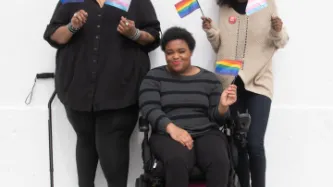Search
Content type: Examples
Eight days after instituting a gender-based quarantine schedule, Peruvian president Martin Vizcarra cancelled the measure two days before it was due to end. It had been met with a backlash from LGBTQ+ activists, who feared trans and binary people would face increasing street harassment from police. However, it also proved that because women do a disproportionate share of domestic work, gender separation forced them to gather in large groups on the days they were allowed out. Instead…
Content type: Advocacy
TEDIC, InternetLab, Derechos Digitales, la Fundación Karisma, Dejusticia, la Asociación por los Derechos Civiles y Privacy International acogen el llamado de la Relatoría Especial sobre Derechos Económicos, Sociales, Culturales y Ambientales (DESCA) de la Comisión Interamericana de Derechos Humanos (CIDH) de enviar información para la elaboración del Informe Anual sobre DESCA del año 2019, que se presentará ante la Organización de los Estados Americanos (OEA) en 2020.
El objeto de este…
Content type: Advocacy
TEDIC, InternetLab, Derechos Digitales, Fundación Karisma, Dejusticia, Asociación por los Derechos Civiles and Privacy International welcome the call made by the Special Rapporteurship on Economic, Social, Cultural and Environmental Rights (ESCER) of the Inter-American Commission on Human Rights (IACHR) to inform the preparation of the Annual Report of the ESCER for the year 2019, which will be presented to the Organization of American States (OAS) during 2020.
This submission aims to outline…
Content type: Case Study
Discriminatory laws on the basis of sexual orientation across the globe exist in stark opposition to the principle that the law should be the same for each and every one of us. We are all entitled to the same protections against any discrimination. Equality before the law dictates that there must be a reasonable justification to regulate any aspect of a person’s life.
Laws discriminating on the basis of sexual orientation interfere with our private lives and development. There can be no…
Content type: Case Study
Every one of us has an expectation to be legally protected in the same way, to have access to the same human rights, and to be able to defend those rights in court.
However, for trans and non-binary people, this has not always been the case – and in many places around the world it still isn’t the case. The lack of legal recognition for their gender has had significant consequences.
If the law does not recognise you as the person that you are and treats you as someone you are not then you…



